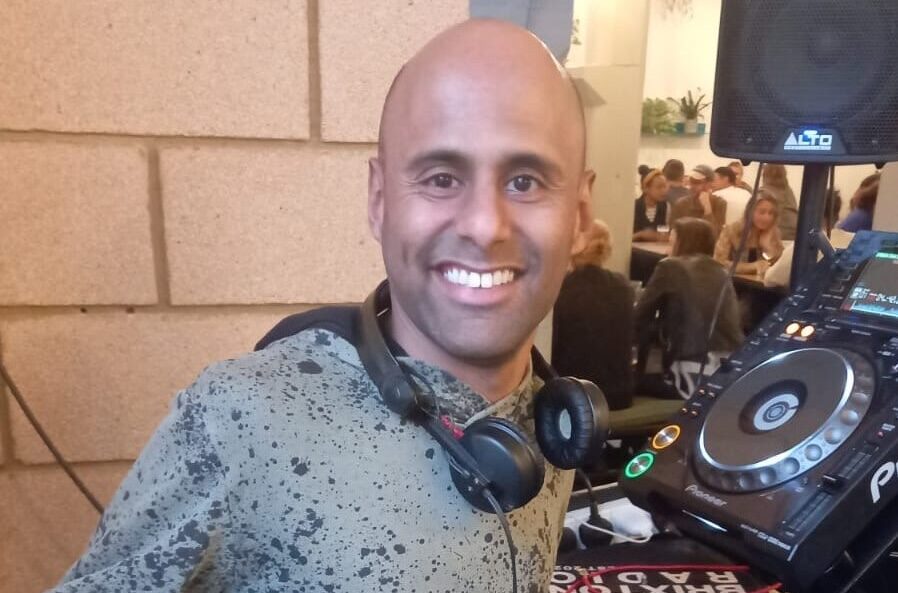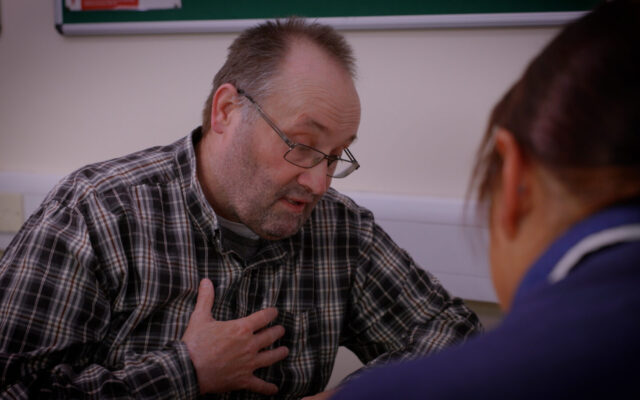Social care has been in the news because the government has asked Baroness Louise Casey to lead an independent commission to sort out the problems in the system.
I have a lot of experience of social care. I get a few hours of help a week from a support worker, and I also work in the sector as a social care researcher and quality checker. This is someone with experience of support services who is paid to check on places such as residential care homes.
I wrote about my job in this magazine (“Like Everyone Else, We Want a Homely Place to Live,” spring 2023) after I did a project with King’s College London looking at what helps people with learning disabilities feel at home where they live.
Everyday structure
My support’s been cut in recent years. I used to get four hours a week – now I get three. My support worker helps me with replying to letters and emails, managing my finances and keeping on top of my work.
When I was in my late teens and struggling with my mental health, I had help from a social worker who helped me get support from an occupational therapist (OT) – someone who can help you get on with everyday things.
This helped me structure my day, kept me busy with activities such as going to day centres and made me feel more independent. I learned how to travel around London, how to cook and clean, go shopping and keep on top of my diary. I had two OTs and I remember them being kind and helpful.
What makes a good social care professional? Being open minded – not strict.
But 9pm is not a bedtime for an adult! We all need to get out and mix with people. Staring at four walls doesn’t help wellbeing or independence
If you work in social care and the person you’re supporting wants to be more independent, you should help them to achieve this goal. You should not stop them because you think it’s too risky or because you think policies and procedures stand in the way. You should be motivated by and enthusiastic about the aims of the person you support.
One thing I find frustrating is that disabled people are not usually supported to have proper social lives because support staff want you home by 9pm.
But 9pm is not a bedtime for an adult! We all need to get out and connect and mix with people because it’s good for self-esteem and confidence. Staying in staring at four walls doesn’t help either your wellbeing or your independence.
Social care needs proper funding because people don’t have enough support. Sometimes people might have an activity to get to but no transport to get there.
It’s worse if you live in a rural area and you don’t have the choices that we do in a city such as London. Social care organisations in rural areas either don’t have the money to put on events or they don’t think creatively.
Support providers could think outside the box. They could come up with ideas like coffee clubs in different locations around the area.
The wide world of social care
No one thinks of social care as a great career option, partly because the pay isn’t great.
Apart from funding, something else the government can do is help people understand what social care is. More people might want to work in it if they knew what it involved.
It is a term that covers so much – the elderly, learning disability, the transition from children’s services into adult social care. Most people also don’t think they will one day need social care themselves. I’d say to them: look in the mirror, one day it might be you who needs support.
I worry for people who don’t have the support network of family and friends that I do.
Although my support hours have been cut, I am grateful and fortunate to have colleagues, family and friends, and I’m confident about asking for help.
If social care could empower people to live independently and make their own choices, they could contribute to society.





